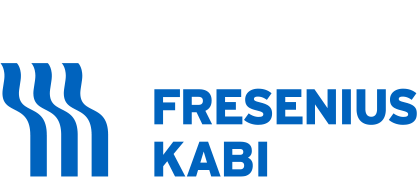Recognizing the Countless Ways Pharmacy Cares
We believe it is important to honor the essential work and contributions made by pharmacy professionals serving in hospitals and health systems. In partnership with the ASHP Foundation, Fresenius Kabi wants to highlight the important role pharmacy plays in patient care by encouraging you to share your story. By offering a few uplifting words from your own experience or highlighting the efforts of a colleague, you can play an important role in recognizing the countless ways that pharmacy cares.
Pharmacists are Indispensable
Today’s pharmacists do much more than dispense medicines, they have a critical role in caring for patients.
At Fresenius Kabi, we believe Pharmacy Week should be the beginning of a larger conversation about the importance of pharmacists in our nation’s hospitals. Please join us in raising awareness that Pharmacists are indispensable in ensuring medication safety, driving best practices, enhancing care teams, and achieving optimal outcomes.
Many of our employees were trained as pharmacists. Today, they work across all areas of our business — Pharmaceuticals, Biosimilars, MedTech, and Clinical Nutrition. Some work in marketing and sales, others as clinical liaisons, still others in product development or medical affairs. Today, they’re applying their deep expertise and personal experiences to shape the solutions Fresenius Kabi brings to pharmacists in clinical practice, and their perspectives can help us all better appreciate the indispensable nature of the pharmacy profession.

Ensuring medication safety
Getting the right medicines to the right patient, in the right dose, in the right route, at the right time — while minimizing adverse events and diversions — has always been a core responsibility of pharmacists. As Doug Shafer, a clinical pharmacy services liaison at Fresenius Kabi, says, “It takes a village to care for the patient. That village includes the doctor, and it includes the nurses, the physical therapy lab, everybody... The pharmacist, their perspective is to make sure that the medications are there, that they're the correct medications, that they're given correctly, they are on time and going to the right patient — the ‘five rights’.” But with pandemic-related staffing shortages and clinician burnout, the issue of medication errors has never been more front and center. Hospital pharmacists are critical to identifying, evaluating, and implementing new tools and processes — like RFID drug tracking, ready-to-use and tamper-evident product packaging, and user-friendly infusion pumps — that will make it easier for everyone to administer drugs with safety, even in the most challenging of times.

Driving best practices
Hospital pharmacists, like doctors and nurses, may specialize in particular areas of their profession, but all pharmacists, regardless of their specialty, are medication experts — this is the source of their unique value in patient care. As Mike Axelsen, senior manager of Medication Technology & Analytics at Fresenius Kabi, says, “Each discipline has its training, and the pharmacist has the broadest knowledge base of the medications. You don’t go to pharmacy school and then you’re done learning. It's something that you're taking on for the rest of your career and you need to stay up-to-date with what's happening and what the most current recommendations are.” That’s why pharmacists are relied upon both to update clinician teams on the latest, most important evidence-based medications and treatments, sorting through the mountain of new drug research and product innovations being released on an almost daily basis. They’re also able to deliver insights about their hospital’s overall prescribing and outcomes, as Pashmina Malik, a senior director in Medical Affairs at Fresenius Kabi, explains. From their role in central pharmacy, “They have a unique position where they can view medications from numerous prescribers… And so they are in a position to actually catch drug interactions better or see potential side effects.” It’s all critical knowledge that ensures each patient receives the most effective drug plan for their situation.

Enhancing care teams
By integrating into multi-disciplinary clinical care teams, pharmacists are providing their colleagues with more timely medication plan recommendations and course-corrections. Pharmacists are also helping communicate directly to patients and their families about their medications to ensure they understand and comply with new regimens — especially as they transition back to their homes. Maria Sheridan, a senior manager and medical sciences liaison at Fresenius Kabi, has seen this first-hand over the past 15 years: “Pharmacists now come out of the pharmacy itself which is often in the basement of the hospital and make themselves known. They’re talking to patients, to their families, and discussing with them exactly what the importance of their medication therapy is. So patients now know that they've got this expertise, this resource, that is fully focused on patient treatment related to medication.”

Achieving optimal outcomes
While pharmacists’ primary area of study is the pharmacology and therapeutic use of drugs, it’s all in the service of patient health and wellbeing. Pharmacists have a vast knowledge base in medication use, side effects, interactions, and effectiveness. That’s why their role in hospital care has evolved over time from primarily dispensing drugs, to proactively reviewing patients’ medications, reviewing labs, determining appropriate dosing and working with the care team to optimize patient outcomes. Mike Axelsen vividly remembers one instance where his intervention might have saved a life: “I was reviewing a patient’s chart who was about to be discharged and noticed that there was a major drug interaction between two medications that they were taking. So I talked to the physician and we both agreed that we should use an alternative medication because the patient could go home and potentially have a major bleeding event.” In these ways and more, pharmacists are playing an essential role in patient care.
